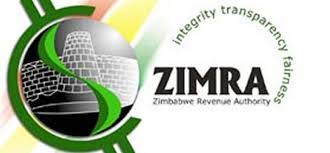Government Intensifies Crackdown on Civil Service Rebate Scheme Abuse

Allegations of Fraud in Vehicle Imports Spark Legal Battles
The Government of Zimbabwe has ramped up efforts to combat fraudulent activities within the Civil Service Rebate Scheme. This follows allegations of widespread abuse involving counterfeit rebate letters to unlawfully import vehicles. Central to the controversy are 19 police officers from Mashonaland West Province accused of bypassing legitimate channels to acquire vehicles under the scheme.
Understanding the Civil Service Rebate Scheme
The Civil Service Rebate Scheme was designed to provide tax rebates for eligible civil servants importing vehicles. However, recent allegations suggest the scheme has been exploited through the use of fake rebate letters. A directive issued on November 22, 2024, by the Commissioner-General of Police required officers who benefitted from the scheme to submit their vehicles for audit by November 29, 2024.
High Court Intervention and Rising Tensions
Instead of complying, the accused officers filed an urgent High Court application to halt the Zimbabwe Revenue Authority’s (Zimra) post-clearance audits. Represented by lawyer Mr. Jimmy Zuze, the officers claimed they adhered to all legal requirements and alleged that Zimra’s directive infringed on their property rights.
Zimra, represented by lawyer Mr. Tinashe Lester Marange, defended the audits as lawful under Section 223A of the Customs and Excise Act, which permits post-clearance inspections, including document reviews and physical vehicle checks. Mr. Marange clarified that the vehicles were not seized but required temporarily for auditing purposes.
Police Facilitation and Constitutional Mandates
The Commissioner-General of Police, represented by Mr. Tinashe Serengwa, argued that the police were fulfilling their constitutional obligation under Section 219(2)(b), which mandates cooperation with other agencies to prevent offences. Mr. Serengwa emphasized the audits were aimed at ensuring accountability and upholding the integrity of the rebate scheme.
Court Ruling Upholds Audits
Justice Phildah Muzofa of the Chinhoyi High Court dismissed the officers’ application with costs. She ruled that Zimra’s audits were lawful mechanisms to ensure proper compliance with importation laws.
“Section 223A gives Zimra powers to conduct post-clearance audits to ensure goods were properly imported. This is a lawful process that cannot be interdicted,” Justice Muzofa stated. She further noted the accused officers failed to provide evidence of unlawful seizure and did not engage with Zimra for clarification.
Wider Implications and Government’s Stance
This case underscores the Government’s commitment to tackling corruption and ensuring public resources benefit intended recipients. Authorities are also reviewing loopholes in the rebate system to prevent future exploitation. The crackdown serves as a stern warning against fraudulent practices and highlights the importance of inter-agency cooperation in enforcing the law.
The Path Forward
As Zimbabwe strengthens its anti-corruption mechanisms, public confidence in governance and accountability is expected to improve. By intensifying scrutiny and addressing systemic vulnerabilities, the Government aims to safeguard the integrity of critical schemes like the Civil Service Rebate.




